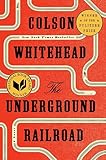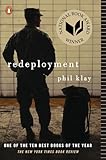A few days after the 2016 presidential election, I did a weird, sobbing thing. I copied Walt Whitman’s “A Noiseless Patient Spider” onto a card and posted it in my office. “And you, O my Soul, where you stand,/ Surrounded, surrounded, in measureless oceans of space,” I wrote. 2017 began, and that space had become everything; I just sat alone in the middle of it, swaddling myself in anxiety. I blocked myself from reading social media because I was afraid to feel angry about my friends and family. Every day was another national crisis; my husband and I started redirecting our money and attention to newspapers, charities, and organizations that protect —we’ve deemed these civic tithes. But I felt scattered and incapable of sustaining a thought, let alone a life of critical reading, or engagement with my government. I wanted to slip into a dark crack and hide there, unnoticed. I didn’t want to read. I didn’t want to move.
 To borrow from Whitman, my 2017 in reading was about the bridge I needed out of that dark space; the tentative, then hopeful casting of webs until something caught. Two books I read early in the year were bridges for different reasons. Courtney Maum’s novel Touch celebrates a future where the latest trends are freedom from technology, and physical human connection. That thought was a balm. The second was David McCullough’s collection of speeches, The American Spirit. Frankly, it gave me hope because it reminded me that America has been in dire straits before—awful messes—but is built on imperfection and persistence.
To borrow from Whitman, my 2017 in reading was about the bridge I needed out of that dark space; the tentative, then hopeful casting of webs until something caught. Two books I read early in the year were bridges for different reasons. Courtney Maum’s novel Touch celebrates a future where the latest trends are freedom from technology, and physical human connection. That thought was a balm. The second was David McCullough’s collection of speeches, The American Spirit. Frankly, it gave me hope because it reminded me that America has been in dire straits before—awful messes—but is built on imperfection and persistence.


 I was reminded that books are products both of when they are written, and the world they are born into. I read Viet Thanh Nguyen’s phenomenal short story collection, The Refugees, the same week the president first cruelly called for a ban on all refugees entering the country. Many books I read—both fiction and nonfiction—in 2017 started to coalesce around the same idea: we don’t believe each other. Whether we’re talking about political needs, or allowing immigration, or honoring the story of someone who has been abused, belief is the central tenet of the conversation. Nguyen’s stories, like Roxane Gay’s memoir, Hunger, Hillary Clinton’s post-election memoir, What Happened, Mohsin Hamid’s magical novel Exit West, and Jesús Carrasco’s novel, Out in the Open, all deal in some way with the questioning of personal truth. This makes sense to me, given how we’ve treated truth like a toy for the last 10 years. I find that exhausting.
I was reminded that books are products both of when they are written, and the world they are born into. I read Viet Thanh Nguyen’s phenomenal short story collection, The Refugees, the same week the president first cruelly called for a ban on all refugees entering the country. Many books I read—both fiction and nonfiction—in 2017 started to coalesce around the same idea: we don’t believe each other. Whether we’re talking about political needs, or allowing immigration, or honoring the story of someone who has been abused, belief is the central tenet of the conversation. Nguyen’s stories, like Roxane Gay’s memoir, Hunger, Hillary Clinton’s post-election memoir, What Happened, Mohsin Hamid’s magical novel Exit West, and Jesús Carrasco’s novel, Out in the Open, all deal in some way with the questioning of personal truth. This makes sense to me, given how we’ve treated truth like a toy for the last 10 years. I find that exhausting.


 I caught up on titles I’ve missed from years past, finally immersing myself in things like Phil Klay’s Redeployment, Chimamanda Ngozi Adichie’s Americanah, Colson Whitehead’s Underground Railroad. I read George Saunders’s Lincoln in the Bardo like everyone else and, like everyone else, was amazed. Two books from 2017 that stood out were Attica Locke’s smart thriller Bluebird, Bluebird, which moves beyond easy tropes of good guy/bad guy to tackle real issues of race in East Texas, and Andrea Lawlor’s gutsy, hopeful, gender- and shapeshifting novel, Paul Takes the Form of a Mortal Girl.
I caught up on titles I’ve missed from years past, finally immersing myself in things like Phil Klay’s Redeployment, Chimamanda Ngozi Adichie’s Americanah, Colson Whitehead’s Underground Railroad. I read George Saunders’s Lincoln in the Bardo like everyone else and, like everyone else, was amazed. Two books from 2017 that stood out were Attica Locke’s smart thriller Bluebird, Bluebird, which moves beyond easy tropes of good guy/bad guy to tackle real issues of race in East Texas, and Andrea Lawlor’s gutsy, hopeful, gender- and shapeshifting novel, Paul Takes the Form of a Mortal Girl.


 I read wonderful books by people I adore: Liska Jacobs’s novel, Catalina, Tod Goldberg’s sequel to Gangsterland, Gangster Nation, JoAnn Chaney’s thriller, What You Don’t Know, Natashia Deón’s novel, Grace, Deanne Stillman’s historical nonfiction Blood Brothers, and Elizabeth Crane’s short story collection Turf. I read a funny memoir about a brain tumor: Mike Scalise’s The Brand New Catastrophe. I read Joan Acocella’s Twenty-Eight Artists and Two Saints and wondered if I’ll ever be the kind of critic I want to be. But all of these books were daring, moving, life affirming. And when I couldn’t handle the all-conflict-no-resolution scroll of social media, these words brought me back to myself and back to a sense of my place in the world. If there’s a slow words movement, like slow food, I want to join it.
I read wonderful books by people I adore: Liska Jacobs’s novel, Catalina, Tod Goldberg’s sequel to Gangsterland, Gangster Nation, JoAnn Chaney’s thriller, What You Don’t Know, Natashia Deón’s novel, Grace, Deanne Stillman’s historical nonfiction Blood Brothers, and Elizabeth Crane’s short story collection Turf. I read a funny memoir about a brain tumor: Mike Scalise’s The Brand New Catastrophe. I read Joan Acocella’s Twenty-Eight Artists and Two Saints and wondered if I’ll ever be the kind of critic I want to be. But all of these books were daring, moving, life affirming. And when I couldn’t handle the all-conflict-no-resolution scroll of social media, these words brought me back to myself and back to a sense of my place in the world. If there’s a slow words movement, like slow food, I want to join it.
Most importantly: This summer I attended a teacher institute at the Library of Congress, and worked on a research project about the WPA Federal Writers’ Project—a time when our government prioritized putting writers to work by having them collect personal histories and write regional guides—writers like Ralph Ellison, Richard Wright, and Zora Neale Hurston. I knew that the Library has a vast array of online and physical resources, but what I didn’t know is that it relies on an almost parallel network of human historians. As I navigated my way through the various reading rooms, I was guided by experts in American Folklife who showed me slides of Hurston in Florida and played recordings of her singing; I was handed boxes of photographs of Federal Writers’ Project Book Fairs by WPA experts in the Prints and Photographs room, and in Manuscripts, an excited WPA expert pulled four boxes of FWP minutes, hand-written notes, and records for me to read. I kept wondering why they were letting me look at all of that stuff. (What if I sneezed on something?) But all I needed was my library card. My most powerful moment in reading was sitting in those quiet, beige rooms in D.C. with American history in my hands. Libraries are still a beautiful democracy of ideas. Despite the sky falling every day in 2017, we have that. It was the thread of connection I needed. O my soul.
More from A Year in Reading 2017
Don’t miss: A Year in Reading 2016, 2015, 2014, 2013, 2012, 2011, 2010, 2009, 2008, 2007, 2006, 2005










